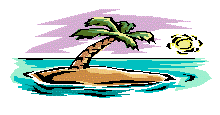No executive is an island
David Clark-MurphyDirector
davidcm. management pty ltd

No executive is an islandDavid Clark-MurphyDirector davidcm. management pty ltd |  |
| The Island Simulation addresses some of the criticisms aimed at simplistic approaches to management training. The simulation design includes realistic workplace features such as: technological and people communications systems; legal, cultural and novel working protocols; competitive and politically influenced problems. It provides specific and clearly identified outcomes for direct transportability to the executives' workplaces. |  |
Management education is sometimes criticised for over specialisation, concentrating on narrow subject areas for intense analysis and understanding. Whilst valuable, this over reliance on management education and qualifications based upon concentrated attention to single subjects in isolation, denies the true nature of management. Real executives think and make decisions within highly complex working environments that frequently involve:
| Problem solving Financial management Leadership Change management Equal opportunity Negotiation strategies Competitive tendering |
Compliance demands Customer orientation and politicality Team development Occupational health and safety Project management Contract management Risk management |
Those selecting or designing a comprehensive executive development program need to recognise the significance of this issue. In real situations, managers are frequently involved in making decisions and dealing with problems within highly complex environments. To design education programs of lesser complexity than an executive's working environment is to deny an individual executive the opportunity for personal development that is directly applicable to the workplace.
The need for integrated education and skills practice within a sophisticated and complex working environment is recognised by the approach and use of a workplace orientated program, The Island Simulation. The Island Simulation was developed to avoid simplistic approaches to executive development. Each program provides a clear set of objectives within a realistic and competitive work environment in which managers can act and review their actions without risk to themselves or their organisations. The design incorporates a fibreglass model island with a flexible array of features. This range of changeable physical features allows for diverse and subtle alternative scenarios on which to base specialised and realistic problems. The physical island is simply a visual focus that provides for unambiguous appraisal and consideration of problems without the individual executive having to interpret unnecessary case study details. This provides for greater use of valuable executive time by allowing auditory, verbal and kinesthetic learning modes.
By incorporating an organisation's systems, contractual documentation, legislative parameters, policies, guidelines, working protocols and culture, the simulation is designed to provide sophisticated and subtle learning programs that reflect realistic executive situations directly related to improving performance and effectiveness at work. Programs are developed and focused around physical, technological, and intellectual environments, accompanied by as much or as little diversity and complexity as required by the client organisation.
In accord with the fundamental design principle of realism, the simulation programs are also delivered within a competitive environment that reflects the real world of executive work. Each design includes comprehensive learning modes within an adult learning cycle to deliver maximum benefit to participants for minimal resource expenditure.
An extension of the facility of simulation is the opportunity to devise realistic future scenarios. This provides executives with educational and training opportunities to address cultural and structural diversity in business. These programs may then be designed to prepare executives for anticipated or speculated demands within a new area of business endeavour, or to simulate and address current problems of an industrial, physical, financial or political nature within their own organisations. By providing this non-threatening yet competitive environment, executives can develop intellectual armories and practical negotiating and decision making skills to simultaneously enhance the future prospects of themselves and their organisations.
A further benefit of this design principle is that executives, who may normally be relatively isolated from each other due to departmental structure or geography, are able to address problems and future scenarios as a team. This facility then allows an executive team to be maintained, on their return to work, through improved interpersonal and commercial communications at a level unavailable to them previously.
To date, simulations have been developed to address significant issues within the realms of international business acumen, international marketing projects, cross-cultural competitive tendering and contract management, industrial relations and human resources planning, project management risk assessment and contingency planning.

| Author: David Clark-Murphy 41 Chardonnay Drive, The Vines WA 6069 Tel +61 8 9297 3015, fax +61 8 9297 3123, mobile 041 894 4223 Email: davidcm@ozemail.com.au David is a sessional lecturer in Corporate Finance, Business Statistics and Small Business Marketing at Edith Cowan University, and is Director of davidcm. management pty ltd, a management consultancy specialising in innovative executive development, research, and consulting to government agencies. Please cite as: Clark-Murphy, D. (1998). No executive is an island. In C. McBeath and R. Atkinson (Eds), Planning for Progress, Partnership and Profit. Proceedings EdTech'98. Perth: Australian Society for Educational Technology. http://www.aset.org.au/confs/edtech98/pubs/articles/clark-murphy2.html |